This page is based on this
Wikipedia article Text is available under the
CC BY-SA 4.0 license; additional terms may apply.
Images, videos and audio are available under their respective licenses.

Third party is a term used in the United States for American political parties other than the Republican and Democratic parties.
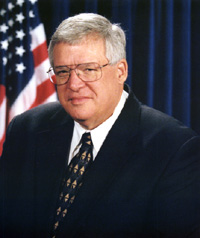
Elections to the United States House of Representatives for the 109th Congress were held on November 2, 2004. The House of Representatives has 435 seats. It coincided with the reelection of President George W. Bush. In the 108th Congress, Republicans held 227 seats, Democrats held 205, with two Republican vacancies and one independent. As a result of this election, the 109th Congress began composed of 232 Republicans, 201 Democrats, one independent, and one vacancy. The Republicans thereby built up their House majority by 3 seats.

The North Dakota Republican Party is the North Dakota affiliate of the United States Republican Party. The Party's platform is generally conservative. The North Dakota Republican Party is strongly in control of the state's politics. The Party holds nearly all statewide positions in addition to having a supermajority in both houses of the state legislature, over the North Dakota Democratic-NPL Party. The current party chairman is Rick Berg.

The Elections for the United States House of Representatives on November 7, 2000 coincided with the election of George W. Bush as President. The Republican Party narrowly lost seats to the Democratic Party, reducing their majority slightly to just three seats.

Elections to the United States House of Representatives in 1914 were held in the middle of President Woodrow Wilson's first term for members of the 64th Congress.
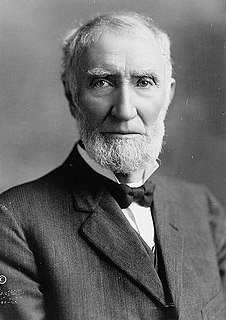
Elections to the United States House of Representatives were held in 1904 to elect members of the 59th Congress, and coincided with the election to a full term of President Theodore Roosevelt.
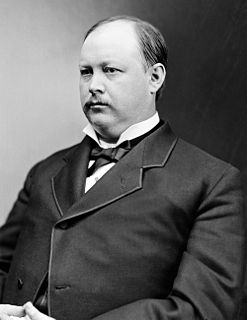
Elections to the United States House of Representatives were held in 1896 for members of the 55th Congress, coinciding with the election of President William McKinley.
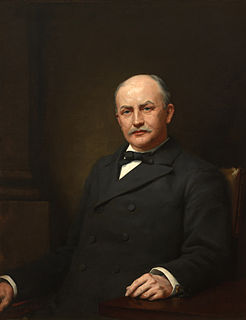
Elections to the United States House of Representatives were held in 1892 for members of the 53rd Congress, taking place at the same time as the election of Grover Cleveland as President for the second, non-continuous, time, defeating incumbent Benjamin Harrison.

Elections to the United States House of Representatives held in 1888 were held to choose members of the 51st Congress, and were held at the same time as the election of President Benjamin Harrison.

Elections to the United States House of Representatives were held in 1886 for Representatives to the 50th Congress, taking place in the middle of President Grover Cleveland's first term.

Elections to the United States House of Representatives were held in 1884 for Representatives in the 49th Congress. These election coincided with the election of President Grover Cleveland.

Elections to the United States House of Representatives were held in 1882 for the 48th Congress, during President Chester A. Arthur's term.

Elections to the United States House of Representatives were held in 1880 for Representatives to the 47th Congress, coinciding with the election of President James A. Garfield.

Elections to the United States House of Representatives were held in 1876 for Representatives to the 45th Congress. These elections coincided with the election of President Rutherford B. Hayes and the United States Centennial.
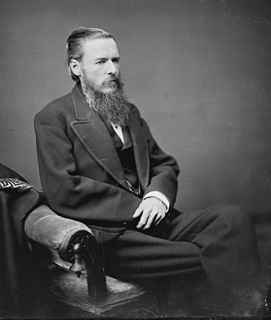
Elections to the United States House of Representatives were held in 1874 and 1875 for Representatives to the 44th Congress, occurring in the middle of President Ulysses S. Grant's second term with a deep economic depression underway. It was an important turning point, as the Republicans lost heavily and the Democrats gained control of the House. It signaled the imminent end of Reconstruction, which Democrats opposed. Historians emphasize the factors of economic depression and attacks on the Grant administration for corruption as key factors in the vote.

Elections to the United States House of Representatives for the 36th Congress were held during President James Buchanan's term at various dates in different states from August 1858 to November 1859.

Party divisions of United States Congresses have played a central role in the organization and operations of both chambers of the United States Congress—the Senate and the House of Representatives—since its establishment as the bicameral legislature of the Federal government of the United States in 1789. Political parties had not been anticipated when the U.S. Constitution was drafted in 1787, nor did they exist at the time the first Senate elections and House elections occurred in 1788 and 1789. Organized political parties developed in the U.S. in the 1790s, but political factions—from which organized parties evolved—began to appear almost immediately after the 1st Congress convened. Those who supported the Washington administration were referred to as "pro-administration" and would eventually form the Federalist Party, while those in opposition joined the emerging Democratic-Republican Party.

The 1970 United States elections were held on November 3, and elected the members of the 92nd United States Congress. The election took place during the Vietnam War, in the middle of Republican President Richard Nixon's first term. Nixon and Vice President Spiro Agnew campaigned heavily for Republican candidates, with Nixon encouraging voters to "show their displeasure with violent dissenters by voting the Republican ticket on election day." However, the Democratic Party retained its Senate majority and increased its majority in the House.

The 2020 United States elections will be held on Tuesday, November 3, 2020. All 435 seats in the United States House of Representatives, 34 of the 100 seats in the United States Senate, and the office of President of the United States will be contested. Thirteen state and territorial governorships, as well as numerous other state and local elections, will also be contested.














